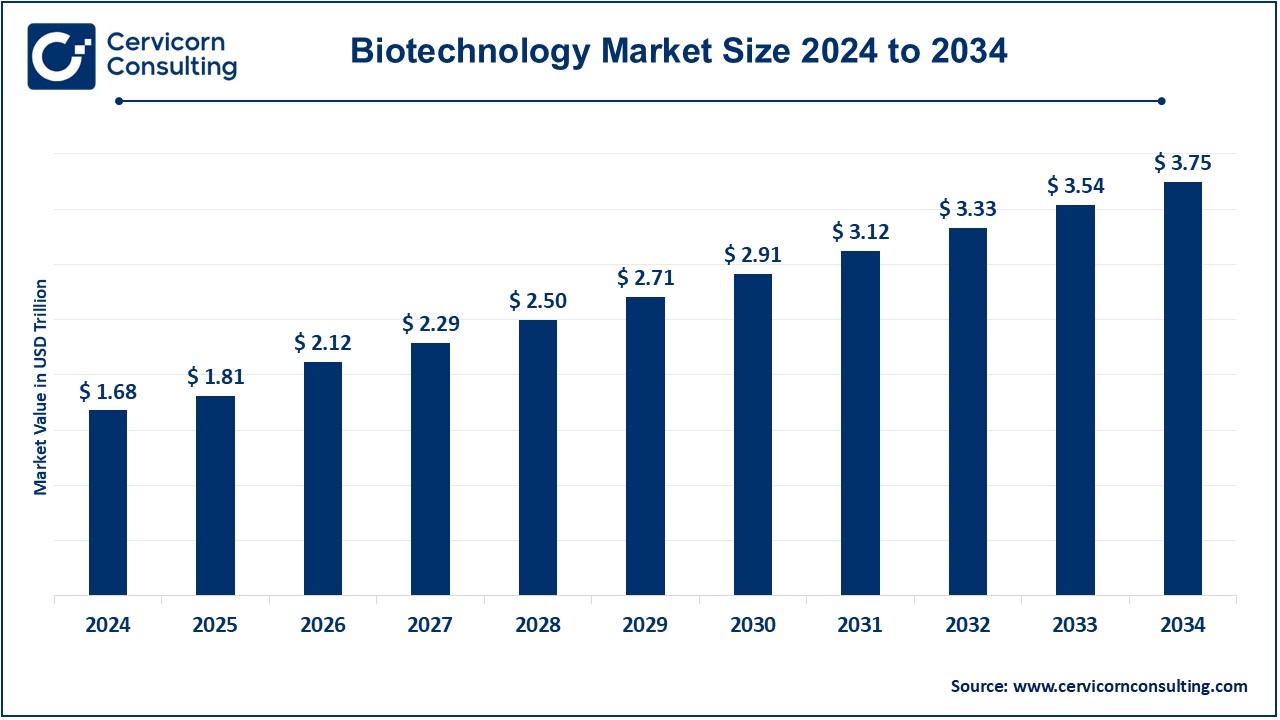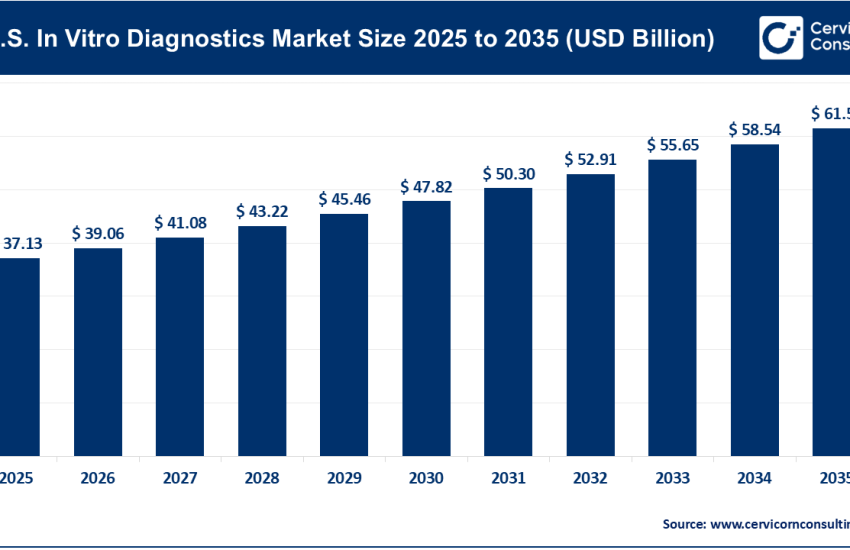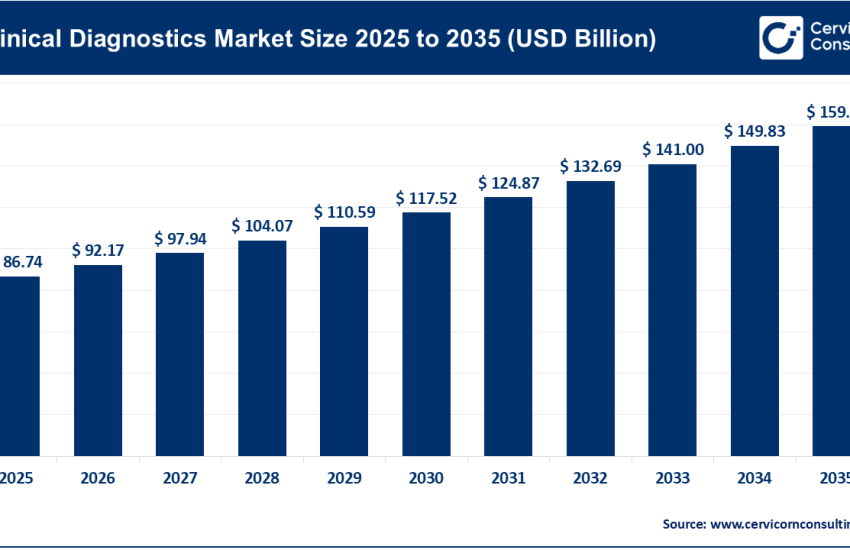Biotechnology Market Growth, Trends, Opportunities, and Leading Players (2025-2034)
Biotechnology Market Overview
The global biotechnology market size was valued at USD 1.68 trillion in 2024 and is projected to reach USD 3.75 trillion by 2034, growing at a compound annual growth rate (CAGR) of 8.36% over the forecast period.
Importance of the Biotechnology Market
Biotechnology is a cornerstone of innovation in the modern world. It has enabled breakthroughs in medicine, improved agricultural yields, and provided sustainable solutions to pressing environmental challenges. The biotechnology market plays a vital role in:
- Healthcare Advancements: Biotechnological innovations have introduced precision medicine, gene therapies, and advanced biologics, offering treatments for previously incurable diseases.
- Agricultural Development: Genetically modified crops have improved resistance to pests, drought, and diseases, ensuring food security for growing populations.
- Sustainability: Industrial biotechnology reduces reliance on fossil fuels by developing bio-based products and renewable energy sources.
- Economic Growth: The biotechnology sector creates high-value jobs, attracts substantial investments, and fosters technological advancements across industries.
Leading Trends in the Biotechnology Market
The biotechnology landscape is dynamic, with several trends shaping its future:
- Gene Editing Technologies: CRISPR and other gene-editing tools are revolutionizing genetic engineering, with applications in treating genetic disorders, developing resistant crops, and biofuel production.
- Biologics and Biosimilars: Biologics remain a dominant revenue generator, while biosimilars are gaining traction due to their cost-effectiveness and rising acceptance in developed markets.
- Personalized Medicine: Leveraging genomics and bioinformatics, personalized medicine tailors treatments based on individual genetic profiles, improving efficacy and minimizing side effects.
- Synthetic Biology: Synthetic biology’s advancements in designing and constructing new biological parts are fostering innovation in drug development, agriculture, and renewable materials.
- AI and Big Data Integration: Artificial intelligence and big data analytics enhance drug discovery processes, clinical trials, and patient management systems, reducing costs and improving outcomes.
- Global Collaborations: Cross-border collaborations between academia, biotech firms, and pharmaceutical giants are accelerating research and development efforts.
Economic Opportunities in the Biotechnology Market
The biotechnology market is a significant economic driver, offering vast opportunities for stakeholders:
- Investment Potential: Venture capital and private equity firms actively invest in biotech startups with promising pipelines and disruptive technologies.
- Job Creation: Biotech firms generate employment opportunities across research, manufacturing, sales, and support functions.
- Regional Development: Countries with robust biotech ecosystems, such as the U.S., Germany, and China, see enhanced economic growth and technological innovation.
- Export Revenue: Biotech products, including vaccines, biologics, and diagnostic tools, contribute significantly to international trade.
Top Biotechnology Companies
1. Amgen Inc.
- Specialization: Biopharmaceuticals
- Key Focus Areas: Oncology, cardiovascular diseases, inflammation, nephrology
- Notable Features: Pioneer in biologics with a strong portfolio of monoclonal antibodies.
- 2023 Revenue (Approx.): $26 billion
- Market Share (Approx.): 5.2%
- Global Presence: Operates in over 100 countries with a focus on North America, Europe, and Asia-Pacific.
2. Gilead Sciences, Inc.
- Specialization: Antiviral therapies
- Key Focus Areas: HIV/AIDS, liver diseases (hepatitis), oncology
- Notable Features: Leader in antiretroviral drugs; pivotal in COVID-19 treatments with remdesivir.
- 2023 Revenue (Approx.): $27 billion
- Market Share (Approx.): 5.4%
- Global Presence: Strong presence in North America, Europe, and emerging markets.
3. Biogen Inc.
- Specialization: Neurological disorders
- Key Focus Areas: Alzheimer’s disease, multiple sclerosis, spinal muscular atrophy
- Notable Features: Innovations in neuroscience, including the controversial Alzheimer’s drug Aduhelm.
- 2023 Revenue (Approx.): $10 billion
- Market Share (Approx.): 2.0%
- Global Presence: Offices and facilities in over 40 countries, emphasizing R&D in the U.S. and Europe.
4. Regeneron Pharmaceuticals, Inc.
- Specialization: Monoclonal antibodies
- Key Focus Areas: Immunology, oncology, ophthalmology, infectious diseases
- Notable Features: Collaboration with Sanofi for Dupixent and COVID-19 monoclonal antibody therapies.
- 2023 Revenue (Approx.): $12 billion
- Market Share (Approx.): 2.4%
- Global Presence: Expanding footprint in Europe and Asia-Pacific through strategic partnerships.
5. Vertex Pharmaceuticals Incorporated
- Specialization: Cystic fibrosis and genetic diseases
- Key Focus Areas: Gene editing, pain management, kidney diseases
- Notable Features: Dominates the cystic fibrosis market with groundbreaking therapies like Trikafta.
- 2023 Revenue (Approx.): $9 billion
- Market Share (Approx.): 1.8%
- Global Presence: Strong presence in North America and Europe, with growing influence in Asia.
6. AbbVie Inc.
- Specialization: Immunology, oncology, aesthetics
- Key Focus Areas: Rheumatoid arthritis, hematologic oncology, neuroscience
- Notable Features: Flagship drug Humira; strategic acquisitions like Allergan for aesthetics portfolio.
- 2023 Revenue (Approx.): $60 billion
- Market Share (Approx.): 12.0%
- Global Presence: Extensive operations in over 175 countries.
Challenges and Future Outlook
While the biotechnology market holds immense potential, it faces challenges such as stringent regulatory requirements, high R&D costs, and ethical concerns. However, the industry’s resilience and ability to innovate ensure a promising future. Emerging economies are expected to play a more significant role in driving demand and fostering innovation.
To Get Detailed Overview, Contact Us: https://www.cervicornconsulting.com/contact-us
Read Report: 3D Printing in Healthcare Market Size, Innovation, Impact & Global Outlook by 2034



